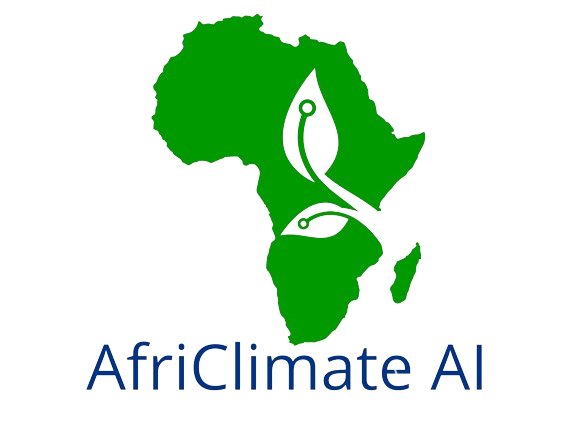
ΑΙhub.org
Introducing AfriClimate AI

By Rendani Mbuvha and Amal Nammouchi
Africa, with its diverse ecosystems and rich natural heritage, is not just a continent; it’s a tapestry of vibrant cultures deeply intertwined with the environment. From the lush rainforests of the Congo Basin, serving as the planet’s lungs, to the Sahara Desert’s arid expanses, the beauty and uniqueness of Africa’s ecosystems are a source of pride and integral to the African way of life. However, like all others, we as a continent face the imminent threat of climate change, which poses challenges that demand people-centric and context-aware solutions. Against this backdrop, AfriClimate AI, a grassroots community, was born with the vision to harness the power of Artificial Intelligence (AI) for a sustainable, prosperous, and climate-resilient Africa. The idea for AfriClimate AI emerged in September 2023 at the Deep Learning Indaba, Africa’s largest annual gathering of AI researchers that took place in Accra, where we collectively realised the many opportunities for community-driven AI efforts in addressing this imminent threat.
Africa’s Connection to Nature
Nature is at the heart of our way of life. Its diverse landscapes, wildlife, and ecosystems are a source of inspiration and provide sustenance for millions. From traditional agricultural practices to cultural ceremonies, the connection between Africans and their environment is deeply rooted. AfriClimate AI recognises the importance of preserving this intricate balance while confronting the challenges of climate change. Despite this deep connection to nature, we are particularly vulnerable to the adverse effects of climate change. Limited adaptation ability, coupled with the continent’s exposure to extreme weather events, pose a significant threat to lives and livelihoods.
Africa’s Climate Data Poverty
The availability of accurate and representative climate data (and related post-processed derivatives) is pivotal to developing adaptation and mitigation strategies that ensure continued resilience in a changing climate. Such data provides crucial information for decision-making, helping communities and governments prepare for and respond to climate-related challenges. Open-source climate information services such as those provided by the European Centre for Medium-Range Weather Forecasts (ECMWF) have become the bedrock of exciting advancements in climate informatics, including state-of-the-art Machine Learning models that include IceNet, GraphCast and Neural GCM.
However, we risk being left behind in these developments due to the severe lack of climate data. An alarming indicator of this is that the distribution of Africa’s weather stations is only one-eighth of the minimum density recommended by the World Meteorological Organisation (WMO). Exacerbated by a fragmented and limited open-source data ecosystem, this data gap hinders our ability to fully leverage advancements in climate informatics as a credible body of ground truth data is at the very foundations of climate science and machine learning.
AfriClimate AI: Bridging the Gap
At the Indaba, we realised that the above-mentioned challenges are not unique to individual researchers but are a common thread in the experiences of most researchers working at the intersection of AI and climate science on the African continent. We then decided to take matters into our own hands and build a multidisciplinary community of researchers that drives collaboration and capacity building with an initial prioritisation of the critical climate data scarcity challenge.
Our inspiration stems from impactful initiatives pioneered by those who came before us, notably the Greenbelt Movement (GBM) founded by Nobel Peace Prize winner Professor Wangari Maathai. The GBM has successfully planted over 50 million trees across the continent, significantly contributing to environmental restoration, improved livelihoods, and empowered communities. Additionally, we find motivation in sister grassroots communities like Masakhane, who actively contribute to the advancement of Natural Language Processing by creating and curating novel datasets and benchmarks that incorporate African languages. These endeavours embody our aspirations and highlight the power of community-driven efforts in fostering positive change.
“You can not protect the environment unless you empower people, you inform them, and you help them understand that these resources are their own, that they must protect them.” – Professor Wangari Maathai
Our Mission
Our work is strongly rooted in Wangari Maathai’s assertion that “you can not protect the environment unless you empower people, you inform them, and you help them understand that these resources are their own, that they must protect them.” As such we have set out ambitious goals to tackle the pressing challenges confronting the continent at the intersection of climate science and AI. Our commitment to research and development aims to actively contribute to breakthroughs in AI-driven solutions for climate science and sustainability. We envision ensuring Africa’s prominent participation on the global stage, shaping the discourse and advancements in these critical fields; this is with a complete understanding that the key to realising this aim is addressing the pervasive climate data challenges. Our focus on capacity building and knowledge sharing aims to empower the next generation of African students, practitioners, policymakers and researchers. By providing education and skill development opportunities in AI and climate science, we envisage a capable and informed community ready to be at the forefront of developments in the above-mentioned areas. Through community building and networking, we seek to foster a collaborative environment that encourages context-aware innovation.
Join AfriClimate AI
We invite individuals who believe in leveraging artificial intelligence towards shaping a climate-resilient and prosperous Africa to join our cause. By becoming a part of AfriClimate AI, you can contribute to a grassroots community that infuses diverse voices and skills to ensure that Africa continues to thrive in harmony with its beautiful and unique natural heritage for generations to come.
tags: AfriClimate AI














